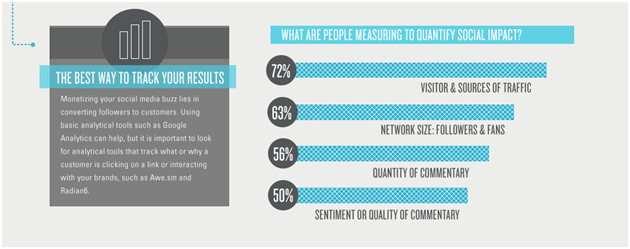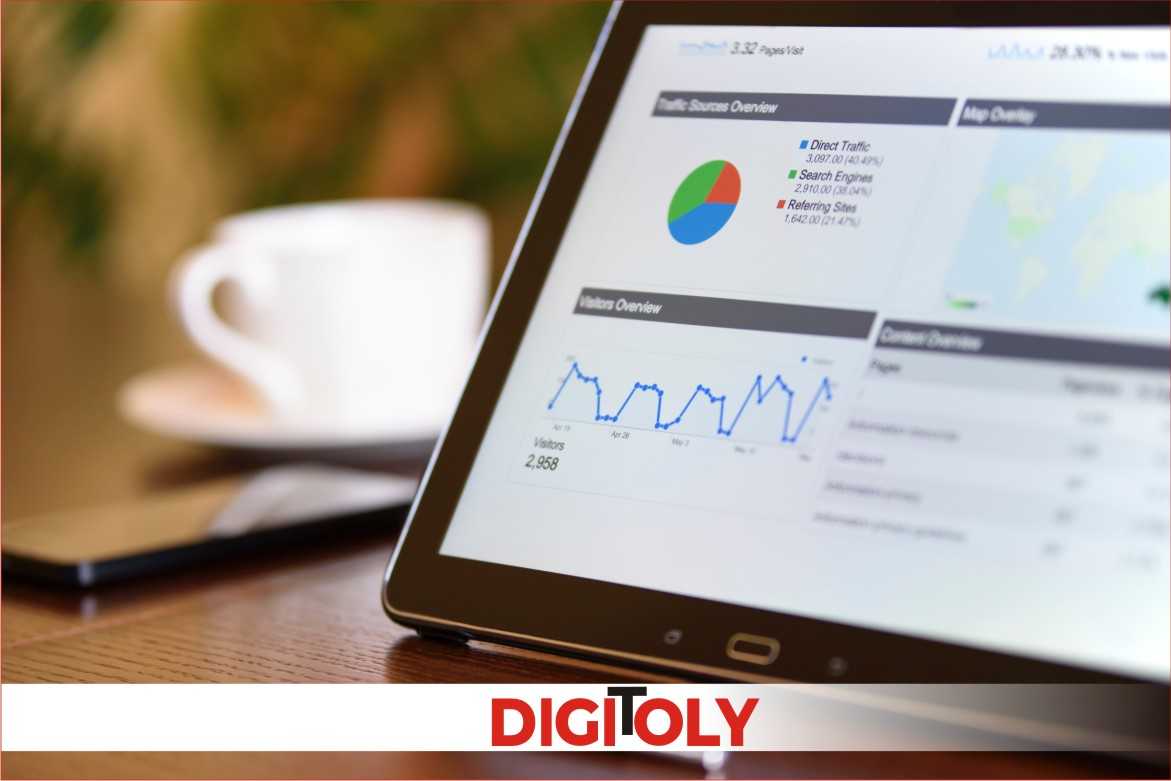The majority of the marketers don’t track social media analytics and social media activities, however, keeping track of social media analytics has become extremely useful, especially for those who want to build brand reputation and ROI from their social media analytics and marketing initiative.
Social channels directly link to traffic, following, and engagement, so measuring them can help out your business in various ways.
There is no denying the fact that, social media campaigns are much more powerful than the usual ads run on websites. For startups and small businesses, most social media campaigns are cost-effective, when the only costs involved are human resources and time.
Do You Track Social Media Analytics?
Social campaigns are often more personal, for the reason that, they occur on a platform that’s trusted. And with correct metrics in hand, social campaigns can be very much fruitful.
Social media is a significant part of any business online that brings traffic and fan following, resulting in sales and the overall growth of brands. From the largest brands to the startups, social media has been used and continues to be used advantageously for various reasons.
Though, still, there is not a great and effective social media analytics tool yet. Brands, companies, and even the startups that do social media marketing have a clear need and desire to measure their ROI carefully.
A social media infographic that was published about a year ago reveals what marketers want to see if they track social media analytics:
- Quantity of visitors and sources of traffic — 72%
- Size of the network (this means the subscribers, followers, etc.) — 63%
- Quantity of commentary and opinions that a social campaign generates — 56%.
- The sentiment of the commentary — 50%.

So, it is quite obvious that for the marketers and social media professionals social media analytics is very much important. But why?
Going further, in this article we will try to find that out and explain ways in which social media analytics can be simplified so it could be highly effective.
Social Media Analytics: Then and Now
About a year ago, it wasn’t very easy to determine the ROI of your social media ad campaigns. By then, the social campaigns were unlike general online campaigns, such as banner ads or squeeze page promotions.
In other online campaigns like PPC, or email Campaigns you would track every click, count the conversions, and calculate the ROI; but with the social media campaigns, this wasn’t possible.
A user might look at your social ad/campaign and not click at all — but make a purchase directly some weeks later. Your social campaign might get shared and retweeted but it may not convert it into sales.
Moreover, there was no way to measure these metrics to figure out the performance of your social media marketing. Due to this General Motors pulled its Facebook campaign before plunging back into conventional fan pages and traditional media engagement, a few years back.
Track Social Media Analytics: What, Why and How?
1. What?
In the case of a link or URL, you measure the clicks. You measure the impressions if it’s an ad. You measure the number of views if it’s a video. If it’s a blog post, you measure comments and traffic on your blog.
But, what do you measure if it’s social media?
Likes, shares, subscriptions, favorites, comments, retweets, replies, mentions, Diggs, … perhaps the length and variety of this list confuse the average marketer who’s trying to analyze ROI from their social media marketing efforts.
You need to know what to measure, in order to get the best out of every social campaign. To determine what exactly you have to measure, you must, first of all, understand the purpose of running the social media marketing campaign. As is the case, the end goals state the measurement metric.
- If you want to generate traffic, you should measure unique visitors from social networks where your social media campaigns are live.
- Or if you want to see at fan following, you should measure: subscribers, followers on your social channels (Facebook, Twitter, Company’s/Brand’s LinkedIn Page, etc.).
- In case you’re looking to generate interaction, you should measure the quantity and type of comments(Facebook comments, Twitter replies/mentions, etc.).
- If revenue is your focus, you should measure: actual cost per lead a social post generates.
Examples of What to Measure in Social Media Analytics
But, in the case of some brands, they need to measure even more metrics. A brand selling cosmetics or women apparel (lingerie, designer sarees, wedding dresses) would want to measure the number of women that have clicked through a socially shared link.
A brand manufacturing mobile handsets or motorbikes might want to measure the peak time of shares and the traffic it generates, say, during a product launch. The ultimate goal you want to achieve corresponds to the metric to be measured.
It should be apparent that likes, shares, retweets, and comments on your posts are not part of an important metric goal for the reason that they are not of direct end result here.
For a small business, measuring the number of likes, shares, or retweets is pointless if none of it generates traffic/following/interaction/revenue or any other goal which the business owner has set for its social media campaigns.
Let me tell you here at this point of discussion that, social media is not just Facebook and Twitter; intensely passionate social media marketers like me know that an enormous source of traffic lies beyond these important social hubs.
A few excellent sources are Google+, Instagram, Digg, Reddit, Mix, LinkedIn, Delicious, Blogs, and even many more.
2. Why?
The answer to the “Why” is, every effort you put in, especially toward marketing even if it is not social media marketing, should be planned and quantifiable, and if I speak in the pure marketing language, it should be measured in numbers.
Let’s say you put in place guest blogging as a strategy to drive traffic to your website. But, in guest blogging, how do you identify the publishers that drive good traffic to your website?
How do you focus only on those that are effective? What will you do to bring in more quality traffic from those publishers to your website? All of that comes from analytics
You set up tools like Google Analytics and Google Search Console to figure out which ones are really good traffic sources and realign your marketing efforts to focus on those publishers/websites/channels, the same is with social media marketing too.
Now, when social media marketing has become extremely important for any business, it’s even more critical to measure the performance of every social media campaign you run as accurately as possible.
3. How?
This is the biggest and toughest question: how do you measure the ROI of social media campaigns?
Well, let’s see how we can do that. Keeping track of social media analytics was hard in the past, but with some really amazing tools these days, it has become easy while retaining sophistication, with a lot of features.
For example, here’s a list of tools that help in a complete and thorough track on social media analytics:
Google Analytics Social
In most of the social media campaigns, this most trusted tool is more than enough.
Go to Google: Analytics > Acquisition > Social > Overview to see your social data.
Google Analytics Social identifies and tracks over 400 social channels. So this tool gets most of the data for you, with specific funnels/filters. You can even track advanced metrics like conversions and the corresponding value of the traffic that comes in through social websites.
Brandify
This tool focuses on brand management through social channels. It’s used by some of the industry’s bigwigs. It’s all about social media analytics; it monitors the social media activity around your brand (website) and helps you manage and enhance through recommendations.
CXSocial
Yet another powerful social media metric tool that brings complete control over your social media campaigns.
Facebook Insights
It does offer some good information on the growth and reach of your Facebook fan page.
Though there are so many other tools that you can use to track social media analytics I am not mentioning all of them here. This post is intended to help digital marketers understand how and what to track in social media analytics to make better and intelligent decisions for their business.
Thanks for reading! I would love to hear from you….please comment on your feedback/suggestions and if you like the content and find it worth sharing please share it with your friends and network who might be interested to read it.


